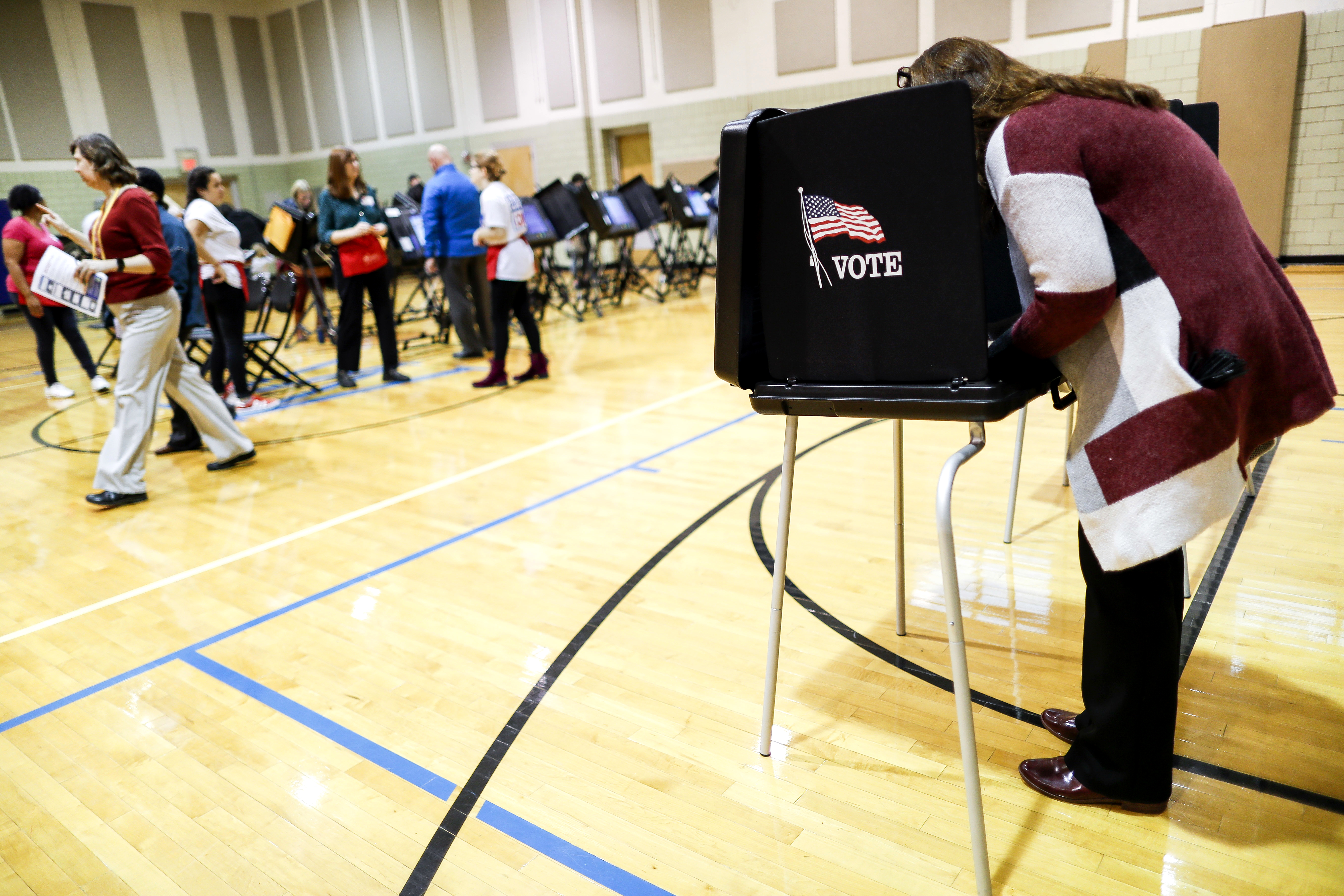If we really wanted our citizens to vote
Other countries have election turnouts of 90 percent. We could, too.


A free daily email with the biggest news stories of the day – and the best features from TheWeek.com
You are now subscribed
Your newsletter sign-up was successful
This is the editor’s letter in the current issue of The Week magazine.
For a nation that prides itself on our pioneering role in democratic self-rule, we are not very good at elections. More than a week after the midterms, we still do not know who won several disputed House, Senate, and gubernatorial races. In this election, nearly half the eligible voters — about 115 million people — cast ballots, which is the highest-percentage turnout for a midterm since 1914. For this surge in enthusiasm, we can, of course, thank President Trump, who is demonstrating even to disengaged citizens why politics matters. But compared with most Western democracies, a 49 percent turnout is pathetic. Based on the 2016 presidential election, we rank 26th out of 32 developed democratic nations in turnout. Belgium had an 87 percent turnout in its last election; Sweden, 83 percent; Australia, 79 percent. Why the huge disparity? Those democracies actively encourage citizens to vote, rather than putting myriad obstacles in their path.
If we truly wanted 80 percent turnout in the U.S., it wouldn't be hard. Democracies with high rates of participation automatically register all citizens to vote. In the U.S., more than 50 million of our citizens — about 1 in 4 — haven't registered and weren't eligible to cast ballots on Election Day. Countries that believe in democracy don't hold elections on Tuesday, when most people are working; they cast ballots on Saturday or Sunday, or make Election Day a national holiday. Curiously enough, some Americans contend that we are better off if certain citizens do not participate in our democracy. Thomas Paine, a Founding Father and revolutionary advocate of self-rule, would disagree. "The right of voting for representatives is the primary right by which all others are protected," Paine wrote. People who can't vote, he said, are like "slaves," whose fate is determined by others. If we want to call ourselves a democracy, we can and should do better.
The Week
Escape your echo chamber. Get the facts behind the news, plus analysis from multiple perspectives.

Sign up for The Week's Free Newsletters
From our morning news briefing to a weekly Good News Newsletter, get the best of The Week delivered directly to your inbox.
From our morning news briefing to a weekly Good News Newsletter, get the best of The Week delivered directly to your inbox.
A free daily email with the biggest news stories of the day – and the best features from TheWeek.com
William Falk is editor-in-chief of The Week, and has held that role since the magazine's first issue in 2001. He has previously been a reporter, columnist, and editor at the Gannett Westchester Newspapers and at Newsday, where he was part of two reporting teams that won Pulitzer Prizes.
-
 Local elections 2026: where are they and who is expected to win?
Local elections 2026: where are they and who is expected to win?The Explainer Labour is braced for heavy losses and U-turn on postponing some council elections hasn’t helped the party’s prospects
-
 6 of the world’s most accessible destinations
6 of the world’s most accessible destinationsThe Week Recommends Experience all of Berlin, Singapore and Sydney
-
 How the FCC’s ‘equal time’ rule works
How the FCC’s ‘equal time’ rule worksIn the Spotlight The law is at the heart of the Colbert-CBS conflict
-
 The billionaires’ wealth tax: a catastrophe for California?
The billionaires’ wealth tax: a catastrophe for California?Talking Point Peter Thiel and Larry Page preparing to change state residency
-
 Bari Weiss’ ‘60 Minutes’ scandal is about more than one report
Bari Weiss’ ‘60 Minutes’ scandal is about more than one reportIN THE SPOTLIGHT By blocking an approved segment on a controversial prison holding US deportees in El Salvador, the editor-in-chief of CBS News has become the main story
-
 Has Zohran Mamdani shown the Democrats how to win again?
Has Zohran Mamdani shown the Democrats how to win again?Today’s Big Question New York City mayoral election touted as victory for left-wing populists but moderate centrist wins elsewhere present more complex path for Democratic Party
-
 Millions turn out for anti-Trump ‘No Kings’ rallies
Millions turn out for anti-Trump ‘No Kings’ ralliesSpeed Read An estimated 7 million people participated, 2 million more than at the first ‘No Kings’ protest in June
-
 Ghislaine Maxwell: angling for a Trump pardon
Ghislaine Maxwell: angling for a Trump pardonTalking Point Convicted sex trafficker's testimony could shed new light on president's links to Jeffrey Epstein
-
 The last words and final moments of 40 presidents
The last words and final moments of 40 presidentsThe Explainer Some are eloquent quotes worthy of the holders of the highest office in the nation, and others... aren't
-
 The JFK files: the truth at last?
The JFK files: the truth at last?In The Spotlight More than 64,000 previously classified documents relating the 1963 assassination of John F. Kennedy have been released by the Trump administration
-
 'Seriously, not literally': how should the world take Donald Trump?
'Seriously, not literally': how should the world take Donald Trump?Today's big question White House rhetoric and reality look likely to become increasingly blurred
